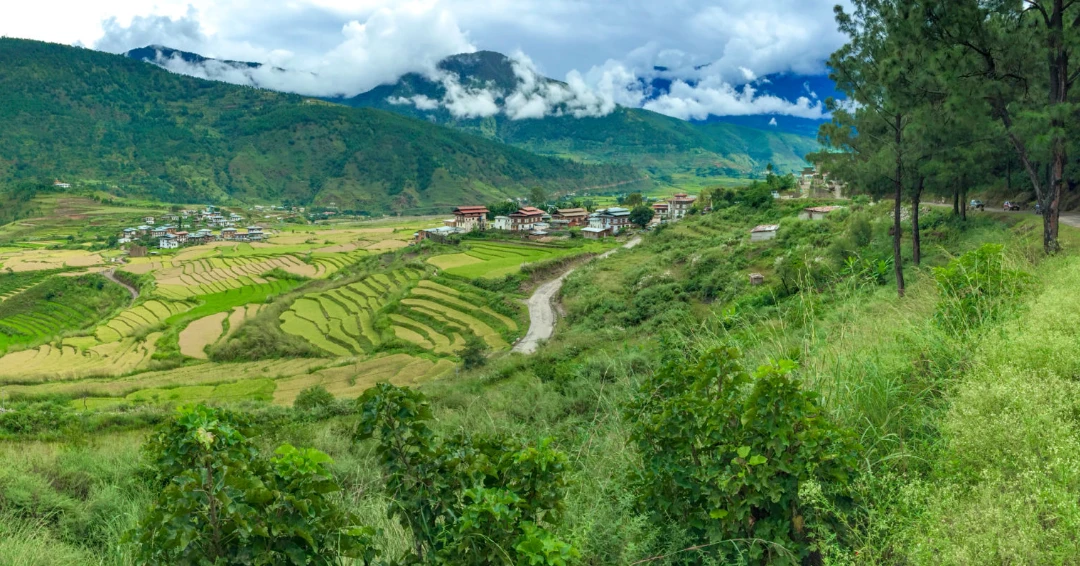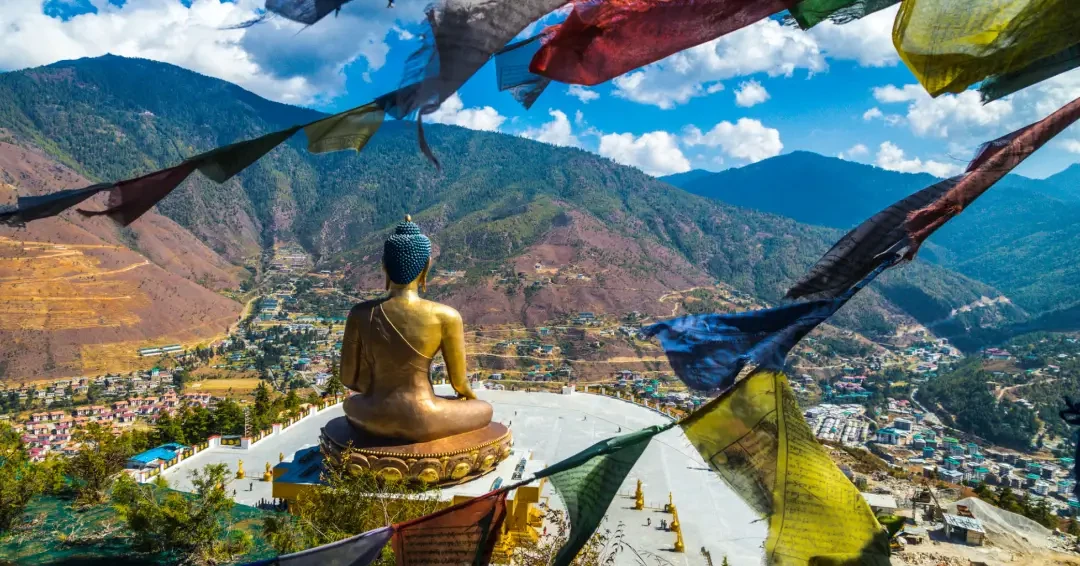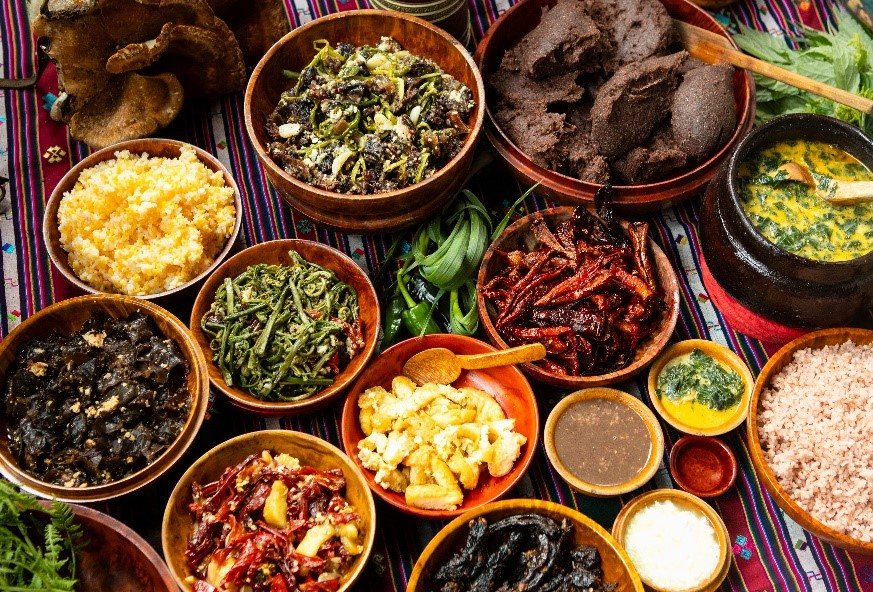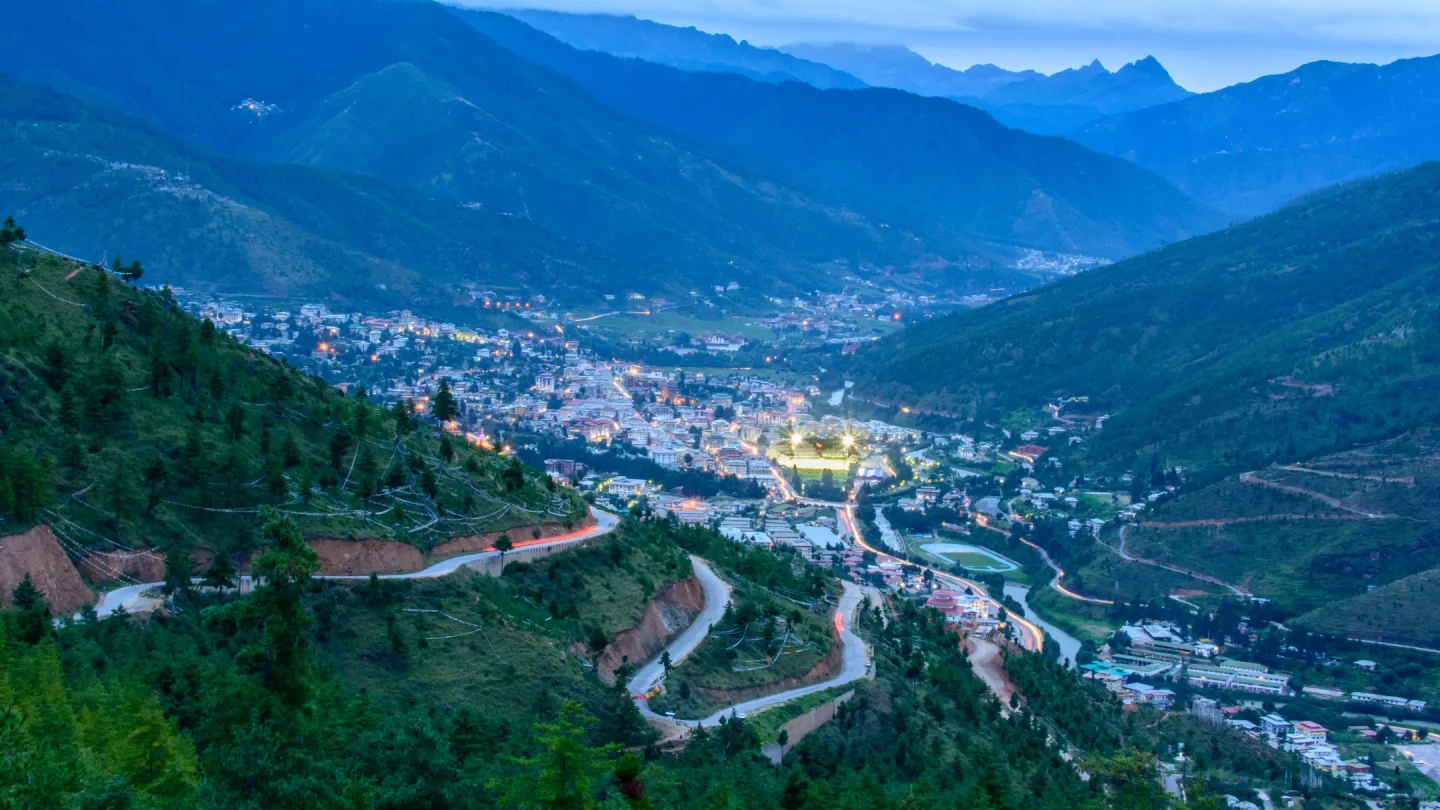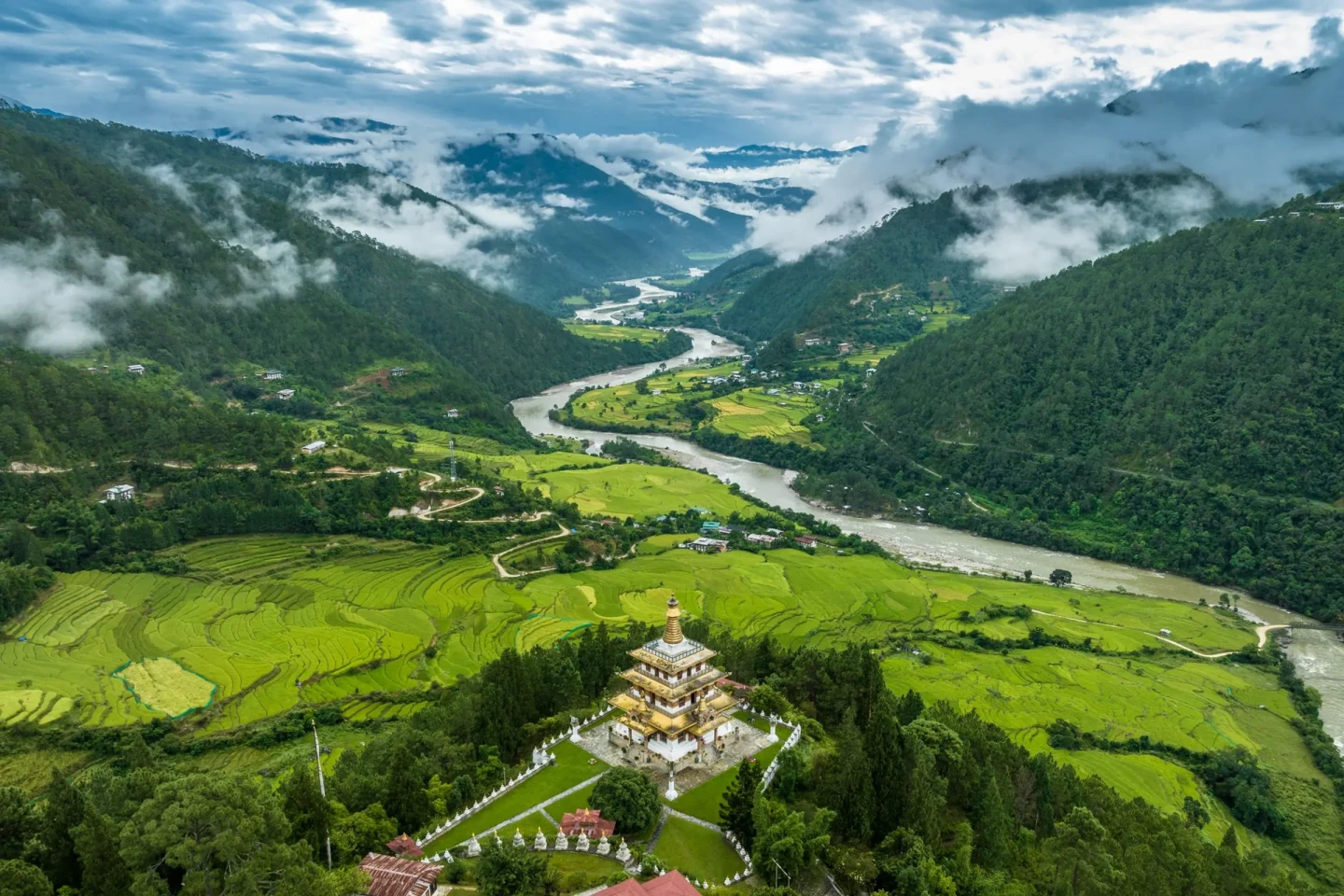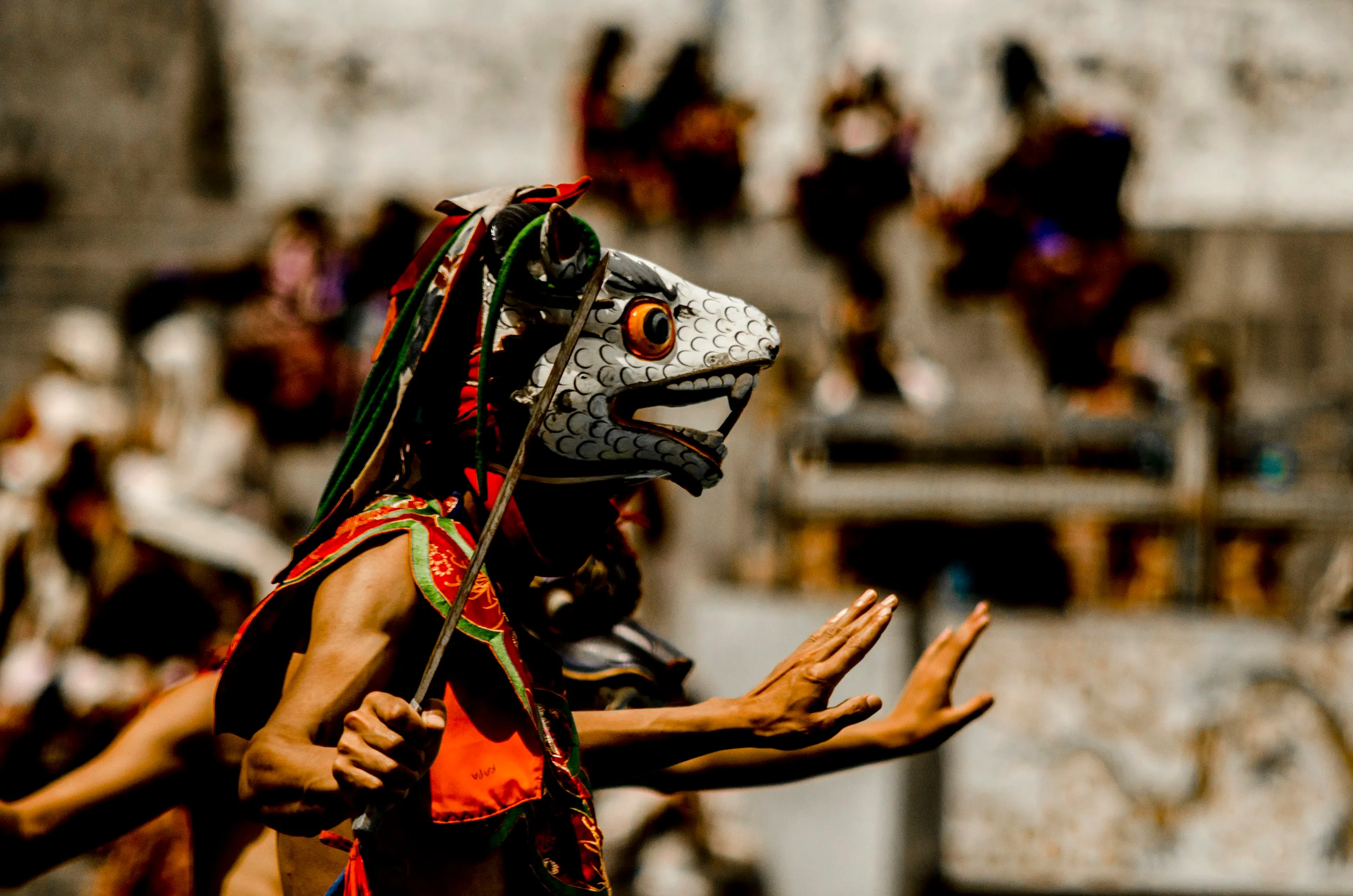Bhutan, often referred to as the Land of the Thunder Dragon, is a small kingdom nestled in the eastern Himalayas, renowned for its breathtaking landscapes, ancient monasteries perched on cliffs, and a profound commitment to preserving its cultural heritage and natural environment. For Algerian travelers, who hail from a vast North African nation characterized by expansive deserts, Mediterranean coastlines, and a rich Islamic history influenced by Berber, Arab, and French legacies, Bhutan offers a stark yet captivating contrast. While Algeria boasts bustling cities like Algiers with modern infrastructure amid ancient kasbahs, Bhutan remains deliberately secluded, prioritizing spiritual tranquility over rapid urbanization. Diplomatic relations between Algeria and Bhutan are cordial but limited, with no direct embassies in each other's capitals; interactions occur through multilateral forums such as the United Nations, where both nations advocate for sustainable development and cultural preservation. Bhutan established formal diplomatic ties with several countries post its UN membership in 1971, but its connections with African nations like Algeria are more symbolic, focusing on shared interests in environmental conservation and non-aligned foreign policies. This subtle relationship underscores a mutual respect for sovereignty and tradition, making Bhutan an intriguing destination for Algerians seeking to escape the arid heat of the Sahara for the misty mountains and lush valleys of the Himalayas. What draws Algerian visitors is Bhutan's philosophy of Gross National Happiness, which echoes Algeria's own emphasis on community and resilience, yet manifests in a uniquely Buddhist context that promises profound personal reflection amid pristine nature. However, Bhutan is not a mass tourism hub; its controlled entry policies ensure that every visit is intentional and immersive, allowing travelers to experience a world where time seems to slow, and happiness is measured not by material wealth but by harmony with one's surroundings.
Visa and Entry Requirements
Bhutan's tourism is governed by a high-value, low-impact policy designed to protect its fragile ecosystem and cultural integrity, requiring all foreign visitors, including those from Algeria, to book their trips exclusively through licensed Bhutanese tour operators. This means Algerian travelers cannot enter independently; instead, they must select a reputable operator who will handle the entire visa application process on their behalf. To initiate this, Algerians need a passport valid for at least six months beyond their intended stay, a recent passport-sized photo, and proof of onward travel, such as a return flight ticket. The tour operator submits these documents to the Tourism Council of Bhutan (TCB) along with a detailed itinerary, and upon approval, the visa is issued electronically or stamped upon arrival at Paro International Airport. The process typically takes about 7-10 working days, so planning ahead is essential. Payment for the tour, which includes accommodation, meals, transportation, and a guide, must be made in advance via bank transfer, as this secures the visa clearance letter required for boarding flights to Bhutan. A key component of the entry fee is the Sustainable Development Fee (SDF), currently set at USD 100 per person per night for most international visitors as of 2025, down from previous rates to encourage tourism recovery. This fee funds Bhutan's free healthcare, education, and environmental initiatives, directly contributing to the nation's Gross National Happiness framework. For Algerian families, children under 5 are exempt, while those aged 6-12 pay half, but the SDF significantly impacts overall pricing, often making a week-long trip cost between USD 1,500 and USD 3,000 per person, excluding airfare. It's worth noting that this controlled system ensures personalized experiences but limits flexibility, so Algerian travelers should confirm all details with their operator to avoid surprises at immigration.
Travel Routes from Algeria to Bhutan
Traveling from Algeria to Bhutan involves multiple legs due to the absence of direct flights, requiring transits through major hubs in Europe, the Middle East, or Asia, with the journey typically spanning 20-30 hours including layovers. From major Algerian cities like Algiers, Oran, or Constantine, the most common route begins with a flight on Air Algérie or Turkish Airlines to Istanbul, followed by a connection to Bangkok, Delhi, or Kathmandu, and finally a short hop to Paro International Airport on Druk Air (Bhutan's national carrier) or Bhutan Airlines, the only two airlines permitted to operate into Bhutan. For instance, a traveler from Algiers might fly Turkish Airlines to Istanbul (about 4 hours), then onward to Bangkok (9-10 hours), and board Druk Air's daily flight to Paro (around 6 hours), arriving amid dramatic mountain views. Paro Airport is one of the world's most challenging due to its high altitude (over 2,200 meters) and surrounding peaks, with pilots requiring special training; flights are daylight-only and prone to weather-related delays, especially during monsoon season when fog or winds can ground planes for hours or days. Algerian travelers should book flexible tickets and allow buffer time, perhaps spending a night in transit cities to acclimatize. Advance booking through the tour operator is crucial, as visa clearance is needed for boarding, and peak seasons see high demand. Overland entry from India is possible but less common for Algerians, involving trains or flights to Bagdogra Airport in India, then a drive to Phuentsholing border, but this adds complexity with Indian visas. Realistic expectations include potential jet lag from time zone shifts (Bhutan is GMT+6, Algeria GMT+1) and the thrill of landing in Paro, where the airport's limitations underscore Bhutan's commitment to controlled growth.
Best Time to Visit and Seasonality
Bhutan's climate is diverse, influenced by its Himalayan topography, with four distinct seasons that profoundly affect travel experiences, from blooming rhododendrons in spring to crisp autumn skies ideal for festivals. Spring (March to May) brings mild temperatures averaging 10-20°C in valleys like Paro and Thimphu, with valleys bursting into color from wildflowers and clear views of snow-capped peaks, though occasional showers can occur; this period is perfect for trekking and birdwatching, with fewer crowds allowing intimate cultural encounters. Summer (June to August) introduces the monsoon, with heavy rains in the south (up to 500mm monthly) causing landslides on roads and humid conditions (20-30°C), yet it's lush for botany enthusiasts and coincides with quieter sites, though flights may delay. Autumn (September to November) is widely regarded as the prime season, featuring sunny days (15-25°C), harvest festivals like Thimphu Tshechu with masked dances honoring Guru Rinpoche, and minimal rainfall for unobstructed Himalayan vistas. Winter (December to February) offers cold, dry weather (0-10°C, dropping below freezing at night), with possible snow in higher altitudes making it suitable for low-season bargains and serene monastery visits, but passes may close. For Algerian travelers accustomed to Algeria's hot summers and mild winters, autumn is recommended for comfortable weather aligning with cultural highlights like Tshechus, balanced crowds, and activities such as hiking Tiger's Nest without extreme heat or cold. Planning around festivals enhances depth, but shoulder months like late spring or early autumn provide value, avoiding peak pricing while enjoying Bhutan's seasonal rhythms that blend nature's bounty with spiritual celebrations.
Money, Costs, and Payment Methods
The official currency of Bhutan is the Ngultrum (BTN), pegged 1:1 to the Indian Rupee (INR), which is also widely accepted, making exchanges straightforward for international visitors. Algerian travelers should exchange Algerian Dinars (DZD) for USD or EUR before departure, as direct DZD exchanges are unavailable in Bhutan; major banks in Thimphu and Paro offer favorable rates for USD, with airports providing counters upon arrival. ATMs are increasingly available in urban areas from banks like Bhutan National Bank and accept Visa/MasterCard, but rural spots lack them, so carrying cash (BTN or USD) is advisable for small purchases. Credit cards are accepted in upscale hotels and some shops in Thimphu, but not universally, often with surcharges; mobile payments like Bhutanese apps are emerging but foreign cards may not integrate seamlessly. Tour prices, mandated by the government, typically include accommodation in 3-star hotels, all meals, internal transport, English-speaking guides, and entrance fees, starting at around USD 250 per day per person (plus SDF), but exclude international airfare, insurance, alcoholic beverages, tips (USD 10-15 daily for guides/drivers), and personal expenses like souvenirs. Algerian groups can expect costs to rise with luxury upgrades, but the all-inclusive model simplifies budgeting, leaving extras like spa treatments or additional excursions as variables. Carrying a mix of cash and cards ensures flexibility, with exchanges best done in cities to avoid rural inconveniences.
Health, Safety, and Travel Insurance
Health considerations in Bhutan revolve around its high-altitude terrain, where elevations from 1,200m in valleys to over 3,000m in passes can trigger altitude sickness, manifesting as headaches, nausea, or fatigue; Algerian travelers, used to lower altitudes, should ascend gradually, stay hydrated, and consult doctors pre-trip, especially those with heart or respiratory issues. Recommended vaccinations include Hepatitis A, Typhoid, Tetanus, and possibly Rabies due to stray dogs, while malaria is low-risk but mosquito repellents help in southern areas. Medical facilities are basic outside Thimphu, with Jigme Dorji Wangchuck National Referral Hospital offering quality care, but evacuations may be needed for serious cases. Bhutan is exceptionally safe, with negligible crime rates thanks to its Buddhist ethos and close-knit communities, though petty theft in tourist spots or risks from uneven paths and dogs warrant caution. Travel insurance with comprehensive coverage, including emergency evacuation (helicopter rescues cost thousands), medical expenses, and trip cancellation, is mandatory and non-negotiable, as Bhutan's remoteness amplifies unforeseen issues like weather delays. Algerian policies should specify high-altitude activities, ensuring peace of mind in this low-risk yet adventure-prone destination.
Cultural Etiquette and Social Expectations
Bhutanese society is deeply rooted in Vajrayana Buddhism, emphasizing respect, humility, and harmony, which Algerian travelers, from a culture valuing hospitality and modesty in Islamic traditions, can appreciate with minor adjustments. When visiting temples, monasteries, or dzongs, dress modestly—long pants, covered shoulders, and no hats or shorts—mirroring Algerian norms at mosques, while removing shoes before entering sacred spaces and walking clockwise around stupas shows reverence. Social interactions prize patience and politeness; greet with "Kuzuzangpo la" (hello) and accept offerings like butter tea with both hands, refusing politely thrice before accepting to honor customs. Humility is key—avoid pointing at people or religious icons, and seek permission before photographing locals, as directness might seem abrupt compared to Algerian warmth. Algerian gregariousness aligns well, but toning down volume in quiet monastic settings fosters respect. Public displays of affection are frowned upon, and topics like politics or royalty demand sensitivity, given the monarchy's revered status. By embracing these nuances, Algerians can bridge cultural gaps, finding parallels in communal values and gaining deeper insights into Bhutan's serene way of life.
Connectivity, SIM Cards, Internet Access
Connectivity in Bhutan has improved markedly, with Wi-Fi available in most hotels, cafes, and tour vehicles, though speeds vary from reliable 4G in Thimphu to spotty in remote valleys, making it sufficient for emails but challenging for streaming. Algerian travelers can purchase local SIM cards from B-Mobile (Bhutan Telecom) or TashiCell at Paro Airport or town outlets, requiring a passport copy and visa; tourist packages offer data (e.g., 5GB for BTN 500) with good coverage in populated areas. B-Mobile edges in rural reach, while TashiCell provides competitive plans—activate upon arrival for navigation apps. Algerian apps like WhatsApp work fine, but potential restrictions on certain services suggest a VPN for unrestricted access, especially for Arabic content. Expect occasional outages in mountains, so download offline maps; this setup allows staying connected without disrupting Bhutan's peaceful ambiance.
Language and Communication
Dzongkha is Bhutan's national language, but English is the medium of instruction in schools and prevalent in tourism, with guides, hotel staff, and urban locals fluent, easing interactions for English-speaking Algerians. Arabic or Tamazight guides are rare, as tourism caters mainly to English, Hindi, or Mandarin speakers, but operators can arrange multilingual support if requested early. For limited-English travelers, visual aids, translation apps like Google Translate (with Dzongkha support), or simple phrases—"Tashi Delek" (good luck)—bridge gaps, while guides act as interpreters. Non-verbal cues, smiles, and patience enhance communication, turning potential barriers into enriching cultural exchanges.
Packing and Preparation Advice
Packing for Bhutan demands versatility due to its microclimates, from warm southern plains to chilly high passes, so Algerian travelers should layer clothing: breathable base layers, fleece mid-layers, and waterproof jackets for rain or wind. Sturdy hiking boots are essential for trails like Tiger's Nest, plus comfortable shoes for towns; pack modest attire for sites—scarves for women, long sleeves for all. Essentials include sunscreen, hats, and sunglasses for UV exposure, reusable water bottles for hydration, personal medications (including altitude remedies like Diamox), and adapters for Type D/G sockets (220V). Insect repellent, flashlights for outages, and snacks suit dietary needs; prepare mentally for altitudes by exercising beforehand.
Bhutan’s Unique Tourism Philosophy
Bhutan's tourism is shaped by Gross National Happiness (GNH), a holistic philosophy introduced by the Fourth King in the 1970s, prioritizing well-being over GDP through pillars like sustainable development, cultural preservation, environmental conservation, and good governance. This manifests in cautious policies limiting visitor numbers via the SDF and mandatory tours, favoring quality experiences that immerse travelers in authentic Bhutanese life without overwhelming resources. For Algerians, this resonates with communal values, explaining why Bhutan resists mass tourism, protecting its 70% forest cover and Buddhist heritage from modernization's pitfalls, ensuring visits contribute to national happiness.
Mindset and Expectations for Visitors
Algerian travelers should embrace Bhutan's slower pace, where "Bhutan time" means flexible schedules amid winding roads and simple infrastructure, contrasting Algeria's urban hustle. Expect boutique hotels with basic amenities, no nightlife or malls, but profound nature and spirituality—hikes through rhododendron forests, monastery meditations. This emphasis on introspection over convenience fosters personal growth, rewarding those open to simplicity.
Food and Dining Culture
Bhutanese cuisine is hearty and spicy, centered on red rice, chilies as vegetables (ema datshi: chilies in cheese sauce), and simple flavors from local produce, with meat like pork or yak in moderation due to Buddhist ethics. Dining is communal, often family-style with tea (suja: butter tea) or ara (rice wine) symbolizing hospitality; Algerians might draw parallels to tagines but adjust to cheese-heavy dishes. Vegetarian options abound, and tours accommodate preferences, making meals cultural gateways.
Festivals, Religion, and Sacred Places
Religion permeates Bhutan, with Vajrayana Buddhism guiding daily life; festivals like Tshechus feature masked dances in dzongs, honoring saints amid vibrant crowds. Visitors observe respectfully—no photography inside temples, modest dress—gaining insights into karma and compassion that enrich spiritual understanding.
Hidden Challenges and Practical Inconveniences
Travelers may encounter slow service, itinerary shifts from weather, power outages, or bumpy roads, but these embody Bhutan's charm, teaching patience and resilience as part of the authentic experience.
Shopping and Souvenirs
Shopping focuses on artisanal goods like handwoven textiles (kira/gho), bamboo crafts, and incense; markets in Thimphu allow light bargaining, ensuring authenticity through TCB-certified shops.
Altitude Awareness and Physical Preparedness
Altitude affects variably—symptoms include headaches; prevent by acclimatizing, hydrating, avoiding alcohol, and pacing activities, with guides monitoring for safety.
Security, Safety, and Emergency Information
Bhutan is secure with low crime; emergencies dial 112 (police) or 113 (health). Algerian embassy support via India; respect laws like no tobacco sales
.
Photography and Drones
Photography is allowed outside but prohibited inside religious sites; drones require permits, banned near sensitive areas for privacy and security.
What Bhutan Does Not Have
Bhutan lacks skyscrapers, fast-food chains, casinos, or mega-malls, preserving its essence as a haven of unspoiled beauty and tradition.
Important Questions to Ask Before Booking a Tour
Before committing to a Bhutanese tour operator, Algerian travelers should inquire thoughtfully to ensure a seamless experience tailored to their needs. Start by asking about the operator's licensing with the Tourism Council of Bhutan and their experience with international clients, particularly those from North Africa, to gauge reliability and cultural sensitivity. Probe into the tour inclusions: What exactly covers the daily rate—accommodations, meals (including halal or vegetarian options if preferred), transportation, and guide services—and what extras like beverages or optional activities might add costs? Discuss guide qualifications: Are they certified, fluent in English or potentially French (common in Algeria), and knowledgeable about Bhutan's history and customs to enrich the narrative? Flexibility is key, so question how itineraries handle weather delays or personal requests, such as extended time at religious sites for reflection. Inquire about accommodations: What standards can be expected—3-star or upgrades—and are there options for eco-friendly lodges aligning with Bhutan's sustainability ethos? Food preferences matter, so ask how dietary restrictions are accommodated, drawing from Algerian cuisine's emphasis on fresh ingredients. For emergencies, confirm protocols: What medical support, insurance requirements, and evacuation plans are in place, especially for altitude issues? Connectivity queries include SIM card assistance upon arrival and Wi-Fi reliability. Language barriers? Request if multilingual resources or apps are provided. Finally, discuss tipping norms (typically USD 10-15 daily) and any hidden fees, ensuring transparency for a worry-free journey.
Conclusion
In a world dominated by fast-paced vacations and commercial attractions, Bhutan stands as a rare sanctuary for Algerian travelers yearning for cultural immersion, untouched natural splendor, and a chance to reconnect with inner peace. This Himalayan kingdom, with its commitment to Gross National Happiness, invites visitors not merely to sightsee but to reflect, fostering a profound appreciation for life's simpler joys amid towering mountains and ancient traditions. For Algerians, the journey to Bhutan transcends geographical distance, offering a bridge between diverse worlds where shared values of community and resilience shine through, leaving indelible memories of spiritual renewal far from the sands of home.





